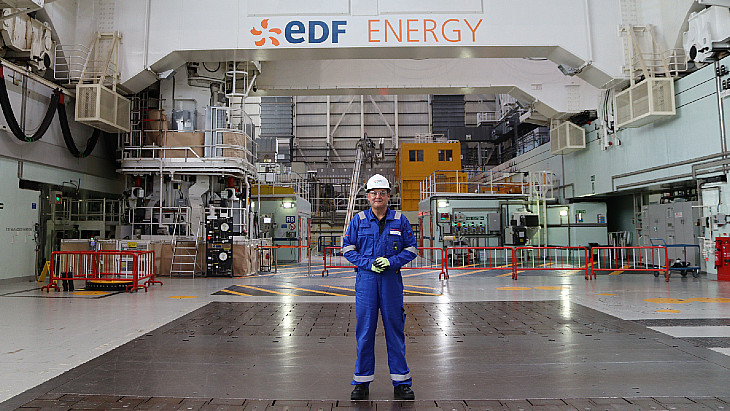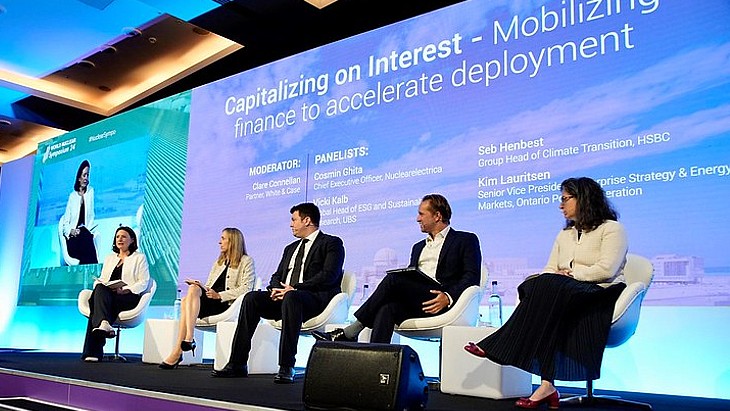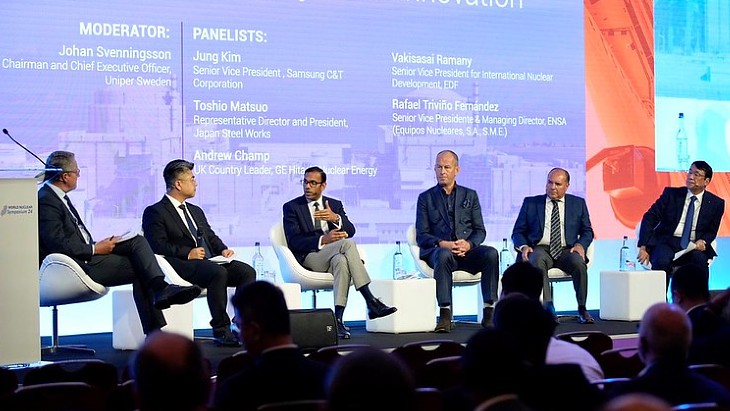Viewpoint: UAE's programme strategic to future of global nuclear energy
Building a nuclear energy programme is a truly global undertaking. It requires a strong and long-term commitment from the nation pursuing the programme, and partnerships with governments and global experts that offer guidance and insight based on best practices and operating experience. As the first new nuclear energy programme in decades, the United Arab Emirates offers a unique example of this process, writes Ambassador Hamad Al Kaabi.

In late June of this year, the UAE became the first country in the world to be assessed under the IAEA Phase 3 Integrated Nuclear Infrastructure Review (INIR), and we were pleased to officially receive the report during the recent 62nd Annual Regular Session of the IAEA General Conference. The review mission evaluated the UAE on 19 infrastructure issues as outlined in the IAEA's Milestones approach - a comprehensive methodology that has guided the UAE, as well as all countries that are newcomers to the global nuclear energy industry, to work in a systematic way towards the introduction of peaceful nuclear energy.
By following the IAEA's Milestones approach from the moment the nation embarked on developing the UAE Peaceful Nuclear Energy Programme in 2008 to successfully concluding the INIR Phase 3 review in 2018, we have clearly demonstrated our position in the international nuclear community. The extraordinary progress we have made is a direct result of our commitment to the key principles of the UAE Peaceful Nuclear Energy Programme, which include complete operational transparency, and adhering to the highest standards of nonproliferation, safety and security. It is also the product of our long-standing collaboration with the IAEA and our cooperation with international organisations.
The UAE continues to benefit from the cumulative global expertise on peaceful nuclear energy, but we have also become a contributor to the international community. As the first country to achieve Phase 3 of the Milestones approach, we have set the benchmark for all countries currently embarking on new peaceful nuclear energy programmes, including Bangladesh, Belarus and the Kingdom of Saudi Arabia. As a result, when the IAEA conducts INIR Phase 3 review missions in the future, the UAE will serve as the reference case and such missions will perhaps include UAE nuclear energy experts as evaluators. Our expertise has once again been recognised as pivotal to the future of the global nuclear energy industry.
The UAE's approach to nuclear energy is more than a policy or public statement. It actively engages and is involved with the global nuclear energy community, gaining knowledge and insight from expert organisations along with countries with established programmes. This engagement and collaboration helps to maintain a focus on continuous improvement and the establishment of a strong safety and compliance culture. Collectively, this has elevated the UAE as a standard bearer in nuclear energy programme development.
As part of this, Nawah Energy Company, the operator of the UAE’s nuclear energy plant at Barakah in Abu Dhabi, recently conducted a comprehensive review of the startup of the plant’s first unit and announced that the unit will commence fuel loading between the end of 2019 and beginning of 2020. This decision is based on the need to complete commissioning and operational readiness and in line with the UAE’s policy commitment to maintain the highest standards of safety.
In my role as the UAE’s permanent representative to the IAEA, I have seen firsthand the country’s commitment to pursuing nuclear energy the right way - from the early days of the programme to today’s significant achievement as we prepare for the operation of the first reactor at the Barakah Nuclear Energy Plant. Prioritising quality and safety during the construction process, and as part of the ongoing preparations for operation, is the only way to maintain strong commitment to the founding principles and ensure the future sustainability of the programme as a whole.
In the development of its programme, the UAE has benefitted from the collective experience and expertise of the global nuclear energy industry. Combined with the framework and commitments the nation’s leadership laid out at the outset, the UAE acts as a leading example of successful peaceful nuclear energy programme development in the region and around the world.
Ambassador Hamad Al Kaabi is the permanent representative of the United Arab Emirates to the International Atomic Energy Agency.
Comments? Please send them to: editor@world-nuclear.org










